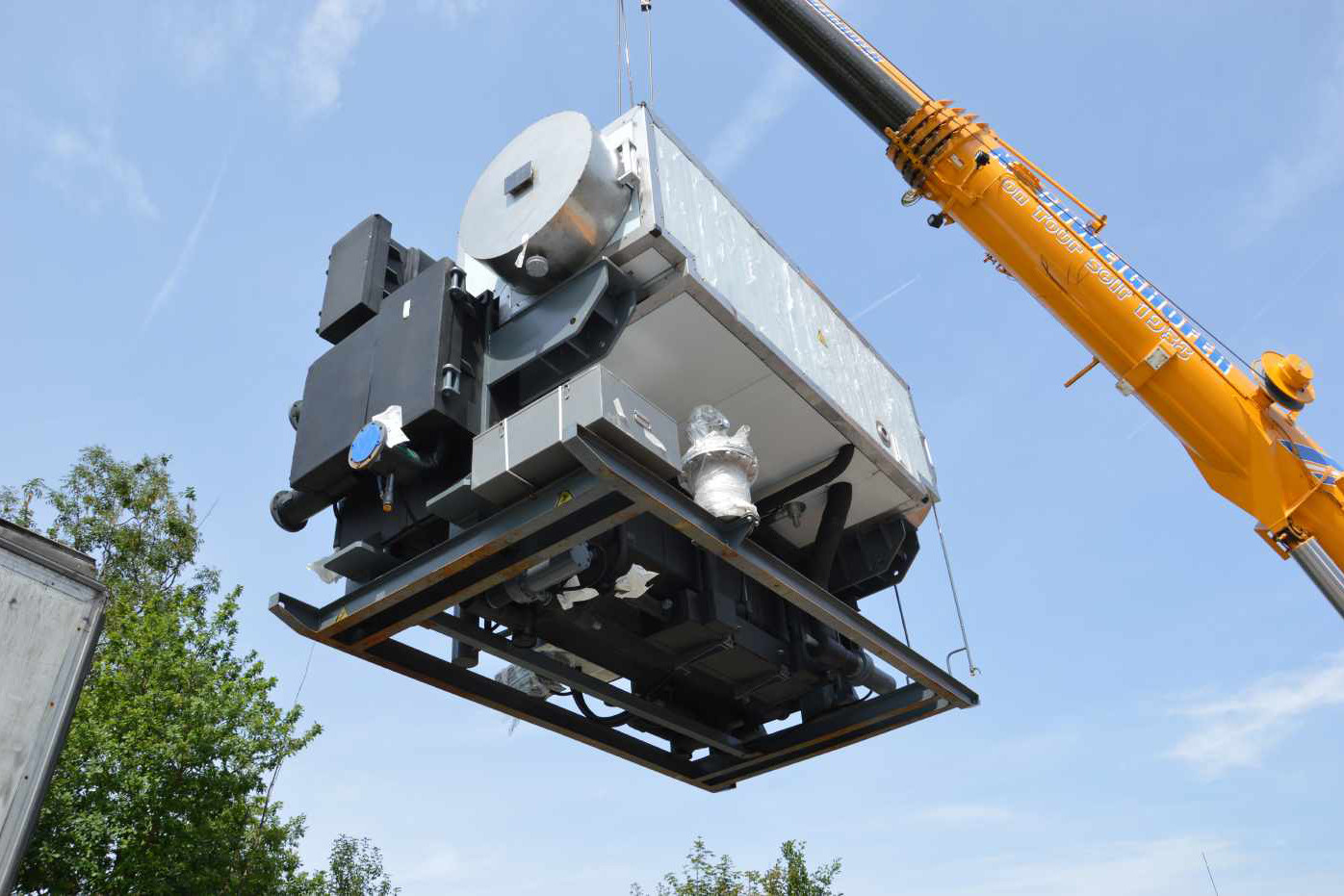
Products
Hot Water Absorption Heat Pump
Working Principle
The refrigerant water in the evaporator evaporates from the surface of the heat exchanger tube. As heat is removed from the tube in the CHW, the temperature of the water is reduced and waste heat is recycled. The refrigerant vapour produced in the evaporator is absorbed by the concentrated solution in the absorber and the absorbed heat heats the hot water to a higher temperature. This is how the heating effect is achieved. The LiBr solution in the absorber then becomes a diluted solution, which is pumped to the heat exchanger by a solution pump. In the heat exchanger, the diluted solution is heated to a higher temperature and then transferred to the generator. At this point, the diluted LiBr solution in the generator is heated by the heat source and produces refrigerant vapour, which directly reheats the hot water in the condenser to a higher temperature. The diluted solution in the generator is concentrated into a concentrated solution which releases heat and cools in the heat exchanger. The concentrated solution is then sent to the absorber, where it absorbs refrigerant vapour from the evaporator and turns into a diluted solution. The next cycle by hot water absorption heat pump begins.
Process Flow Diagram

In order to take full advantage of the residual heat of the DHW, the evaporator and the absorber are designed as upper and lower parts, so as to reduce the concentration of the dilute solution at the outlet of the absorber and increase the concentration difference generator inlet and outlet, finally improve the performance of the unit.
Introducing our state-of-the-art Lithium Bromide heat pumps - the perfect solution for your heating needs.
Our hot water absorption heat pump systems are the best on the market, equipped with advanced technology to ensure optimum performance, reliability, and energy efficiency. As a leading geothermal heat pump manufacturer, we provide systems that are designed to meet the highest standards in energy conservation and heating performance. A lithium bromide heat pump consists of ten main components, each with unique features that help improve system efficiency.
These components include generators, condensers, evaporators, absorbers, heat exchangers, automatic air purge systems, solution pumps, refrigerant pumps, vacuum pumps, and electrical cabinets. As a trusted geothermal heat pump manufacturer, we ensure each component is crafted to provide reliable and efficient performance in every system.
A generator serving as a power source heats a dilute lithium bromide solution as the heat source enters the generator, causing water to evaporate as refrigerant vapor. The steam enters the condenser to heat the domestic hot water to achieve the ideal heating effect. The condenser is connected with the generator, and the generator is the container with the highest pressure in the heat pump system, which has the characteristics of slight negative pressure. As a responsible geothermal heat pump manufacturer, we focus on designing systems that optimize energy use and maintain system integrity.
The evaporator acts as a waste heat recovery unit; the refrigerant water evaporates from the surface of the heat transfer tube, cools the CHW, recovers the cooling waste heat, and the steam enters the absorber from the surface of the heat transfer tube. The absorber is the lowest pressure vessel in the system, which absorbs the refrigerant vapor and generates valuable heat to heat the DHW.
The heat exchanger is another component that recovers the heat in the LiBr solution, which improves thermal efficiency by transferring heat from the concentrated solution to the dilute solution. At the same time, the automatic air purification system pumps out the non-condensable air in the heat pump to maintain a high vacuum state in the heat pump. As an experienced geothermal heat pump manufacturer, we incorporate these cutting-edge technologies to enhance system performance.
The solution pump and the refrigerant pump transport lithium bromide solution and refrigerant water respectively to ensure the normal flow of the liquid working medium in the heat pump. On the other hand, vacuum pumps are used for vacuum purge during startup and air purge during operation. The electric control cabinet is the control center of the lithium bromide heat pump, housing the main control and electrical components, ensuring the best performance and maintenance of the system.
In conclusion, choosing our hot water absorption heat pump systems ensures top-notch quality, reliability, and energy efficiency. The components of our system work together to ensure optimal heating of the DHW while recovering waste heat and maintaining the required vacuum conditions. As a leading geothermal heat pump manufacturer, we are proud to provide the ultimate solution for your heating needs.















